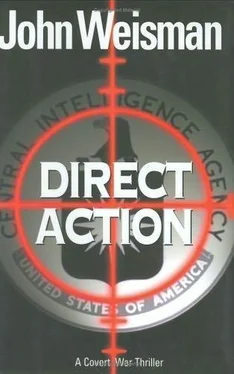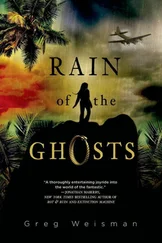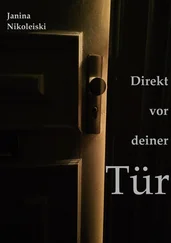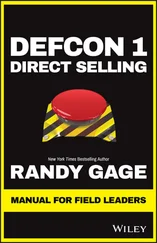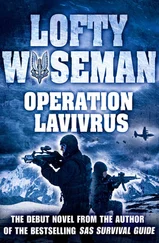“The truth?”
“That Arafat has never stopped employing terror.” Shahristani sipped Evian. “PLO emissaries travel with immunity. How do you think Arafat ships the millions he’s skimmed from the Palestinian aid packages? He used the PA’s diplomatic pouch. Now Imad Mugniyah and Tariq Ben Said need those same diplomatic pouches to move their supplies around Europe-even into America.”
“And the Gaza hits?”
Shahristani frowned. “I don’t understand.”
“Motive?”
“I’m not sure,” Shahristani said, far too quickly. “Imad Mugniyah’s presence in Gaza was close-hold. He had his own security-his Hezbollah guards from Lebanon, and two men from Seppah.”
Shahram had changed the subject. It was classic tradecraft, indicating reticence, or deception. Tom decided to press the issue. “ Motive, Shahram…”
Shahristani lit another cigarette, took a long drag, and let his silence do the talking.
Tom tried another tack. “So, we knew nothing?”
“Nothing. You were blind.” Shahristani shook his head. “And so were the Israelis-until it was far too late.”
“What do you mean?”
“Twice in the last three months, the Israelis uncovered Ben Said’s untraceable explosives. But they didn’t realize the implications.”
“What? How?”
“This past August, there was an explosion in a second-story room at the Nablus Road Hotel in East Jerusalem. When the authorities arrived they found a tourist-a German citizen of Arabic descent named Heinrich Azouz-who’d blown both arms and a good part of his face off. Obviously, Azouz had been building a bomb and he’d set off the explosives by accident. Shin Bet checked Azouz’s records. He’d traveled from Frankfurt the previous day on Lufthansa. Shin Bet assumed-incorrectly-that he’d been supplied with explosives domestically. When the Shin Bet lab did its forensics on the residue, they identified it as Semtex-assumed it was from the Fatah stocks. Ben Said’s formula prints just like Semtex. It employs virtually identical tagants. So that’s what they saw: Semtex. Just like the stuff the Al Aqsa Martyrs Brigades uses. They never did any follow-up analysis. Never sent the explosives to their security people. Never reverse-engineered the explosives and put samples through any of their detection devices.”
“But?”
The Iranian paid no attention to Tom’s interruption. “Last month, a French citizen named Malik Suleiman, whose papers identified him as the London correspondent for a Paris-based Arab literary magazine, suicide-bombed a Tel Aviv nightclub. When the Israelis checked, they discovered that the magazine Suleiman worked for existed only on paper. There was a phone number, and a letter-drop address. But no offices-and more to the point, no magazines. Suleiman was traveling with a British woman named Dianne Lamb. Lamb was in the nightclub’s lavatory when Suleiman blew himself up. Shin Bet learned they were involved romantically and believed he’d had second thoughts about killing her. Since both of them had just visited the West Bank-Ramallah, to be exact-the Israelis assumed Suleiman received the explosives there, because once again the residue printed as Semtex. Shin Bet was wrong. Suleiman, too, was using Ben Said’s materials. In fact, the woman had unknowingly carried them all the way from Heathrow concealed in a portable radio-something the Israelis finally realized only after they’d fully interrogated Lamb.” Shahram’s eyes flashed behind his glasses. “These were disposables, Thomas. Azouz, Suleiman, Lamb-all of them.”
Instinctively, Tom understood. Ben Said had been probing his adversaries’ weaknesses. The KGB had done the same thing during the Cold War. They’d send a disposable and see how far he got. Then they’d make adjustments and send another. Then a third and fourth, if necessary. The Sovs were never worried about losing people. Christ, they’d lost tens of millions during wars and purges. What were the lives of a few dozen agents? And now, it seemed, al-Qa’ida had adopted the tactic, too. Just like the Soviets, al-Qa’ida didn’t worry about losing agents.
Now Tom saw the Gaza bombing in a new light: it wasn’t an operation in and of itself. It was a penetration exercise: Ben Said had been testing the limits. Seeing how far he could go before being discovered. Watching what the Israelis did-how they reacted. If bells and whistles had gone off, he’d have known they’d discovered his new plastique formula.
But there had been neither bell nor whistle. In fact, Tom had called 4627’s Tel Aviv office the minute he’d heard the radio bulletin about the Gaza bombing. Reuven Ayalon, the retired Mossad combatant who ran the one-man 4627 base out of his house in Herzlyia, had trolled his sources. Thirteen hours later, he’d telephoned Tom to report that despite Palestinian attempts to pollute the Gaza crime scene, Shin Bet had managed to obtain a trace amount of residue from the explosive that had blown up the embassy Suburban. The sample had printed as Semtex.
But there had to be more . If the two incidents had indeed been penetration exercises, what was Ben Said trying to penetrate? Israeli security? Possibly. But al-Qa’ida might just as easily have larger targets in mind. Western Europe. The United States.
“You know why?” Shahram asked.
“Why what?”
“Why Ben Said was in Israel.”
“Of course I do. He was testing to see how far he could go before his weapons were discovered.”
“You are wrong.”
“No, I’m not.”
“You are thinking too logically, Thomas.” Shahram slipped into French. “Ben Said was using Israel as a testing ground to perfect weapons that would be used this winter against the West. Against America. Against Britain. Against France.”
“Impossible.” Tom was incredulous.
“Not impossible. Just as Hitler once tested his war-making capabilities in Spain, so was”-Shahristani looked around then continued in a whisper-“Ben Said using Israel as a laboratory for clandestine weapons of mass destruction that will be targeted at the West.”
“Why in heaven’s name would he do that?”
“Because he could, Tom. Because what makes headlines in Paris or London gets hardly a mention if it carries a Tel Aviv dateline.”
“That’s awfully far-fetched, Shahram.”
“Perhaps.” The Iranian went back to Arabic. “But there you have it.” He sipped water. “More to the point, you have Imad Mugniyah and Tariq Ben Said in the same photograph. That is something, Tom. That is something.”
Well, Shahram was right about that. If, that is. If the information was good-if it was twenty-four-karat stuff. Even the prospect set Tom’s pulse throbbing. Quickly, he took a gulp of wine to mask his excitement. “Shahram, how long have you had this information confirmed?”
“Six days.”
Jeezus, that was an eternity. “Why didn’t you call me immediately?”
“Because,” Shahristani said, “I wanted to verify things to my own satisfaction before I wasted anyone’s time.”
“And did you?”
The Iranian’s face was oblique. “I am satisfied with what I know.”
Tom had one final base to cover. “Did you contact our embassy?”
The Iranian nodded.
“When?”
“A short while after I’d confirmed my information.”
He was being evasive. He was trying to deflect. Tom wondered why. “I need specifics, Shahram.”
Shahristani paused. He scanned the mirror behind Tom. “I phoned.”
“When?”
“Yesterday morning.”
“Reaction?”
Shahristani fell silent as a salad was placed in front of him. He glanced at Tom to make sure the American had concealed the photographs, which he already had.
Читать дальше
